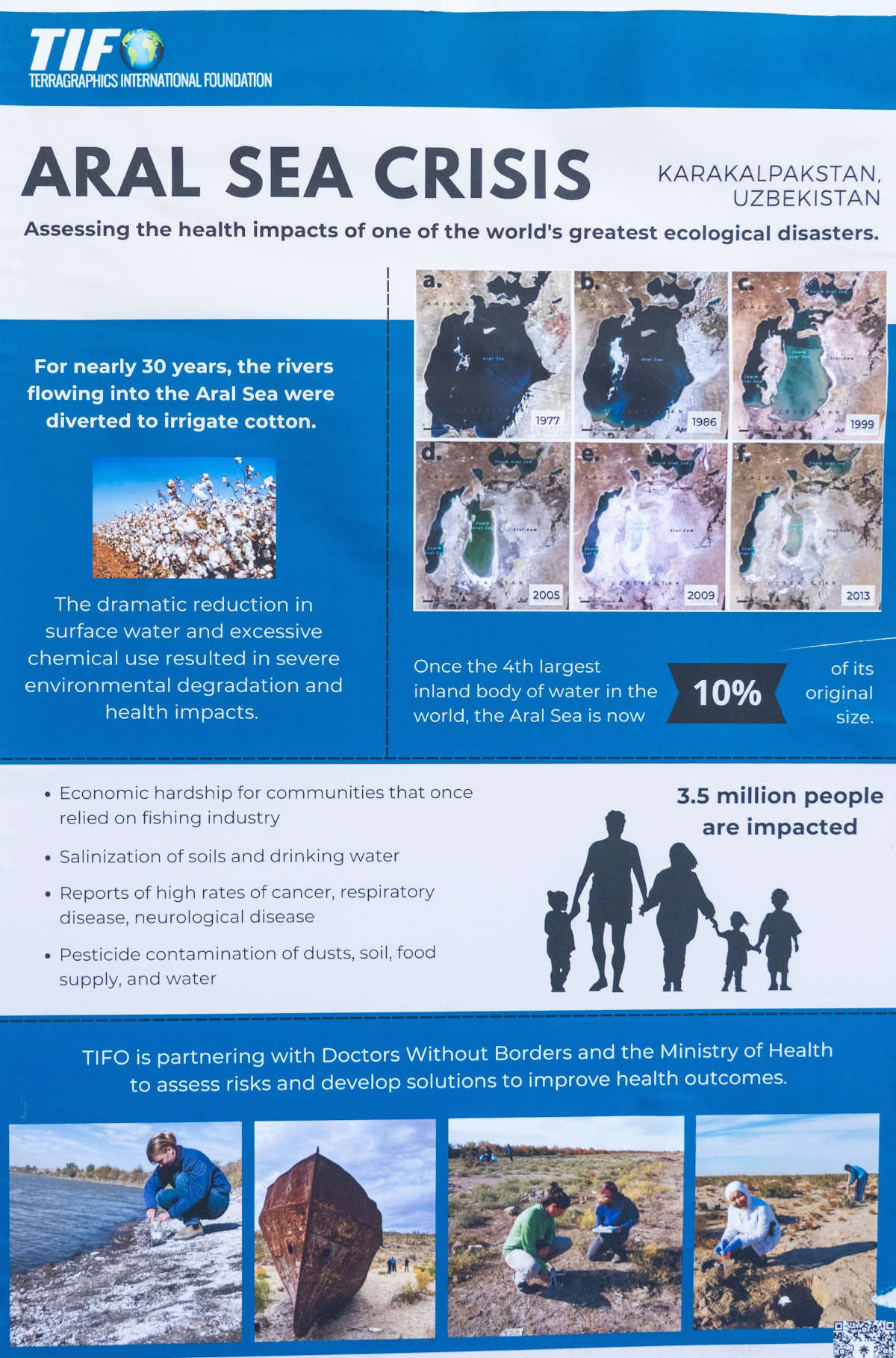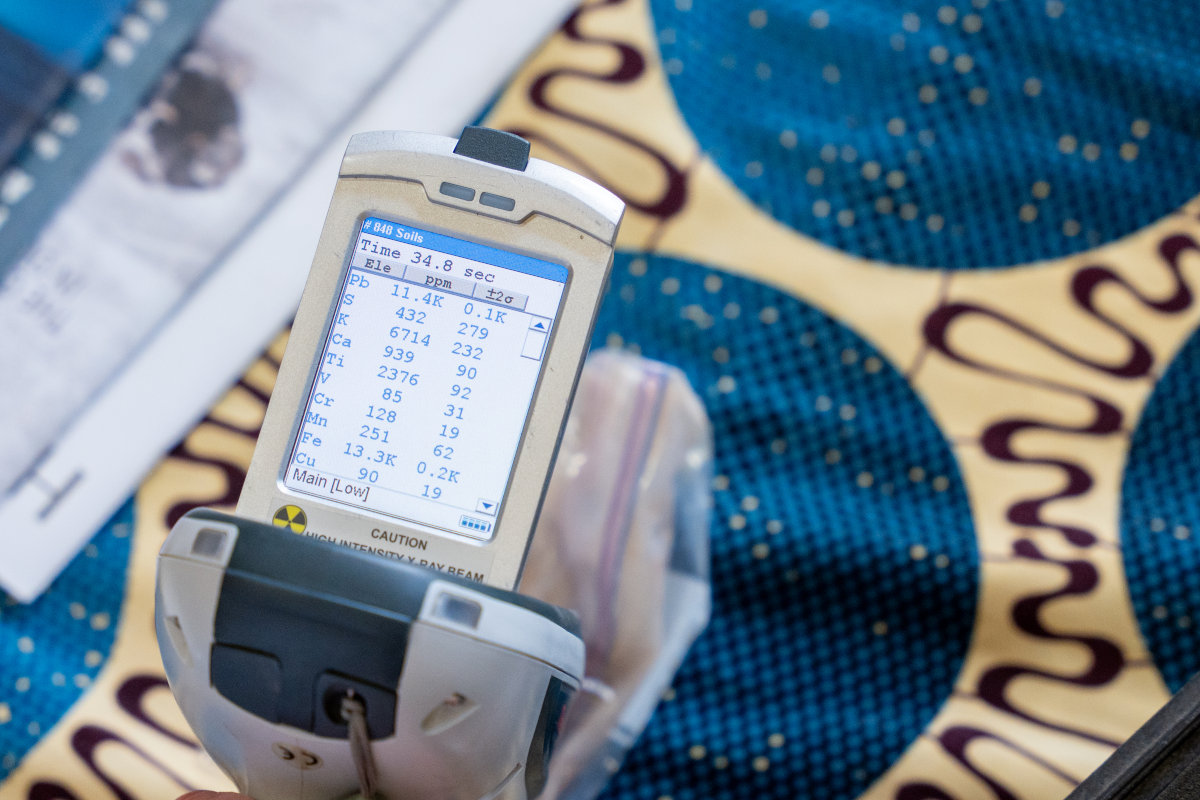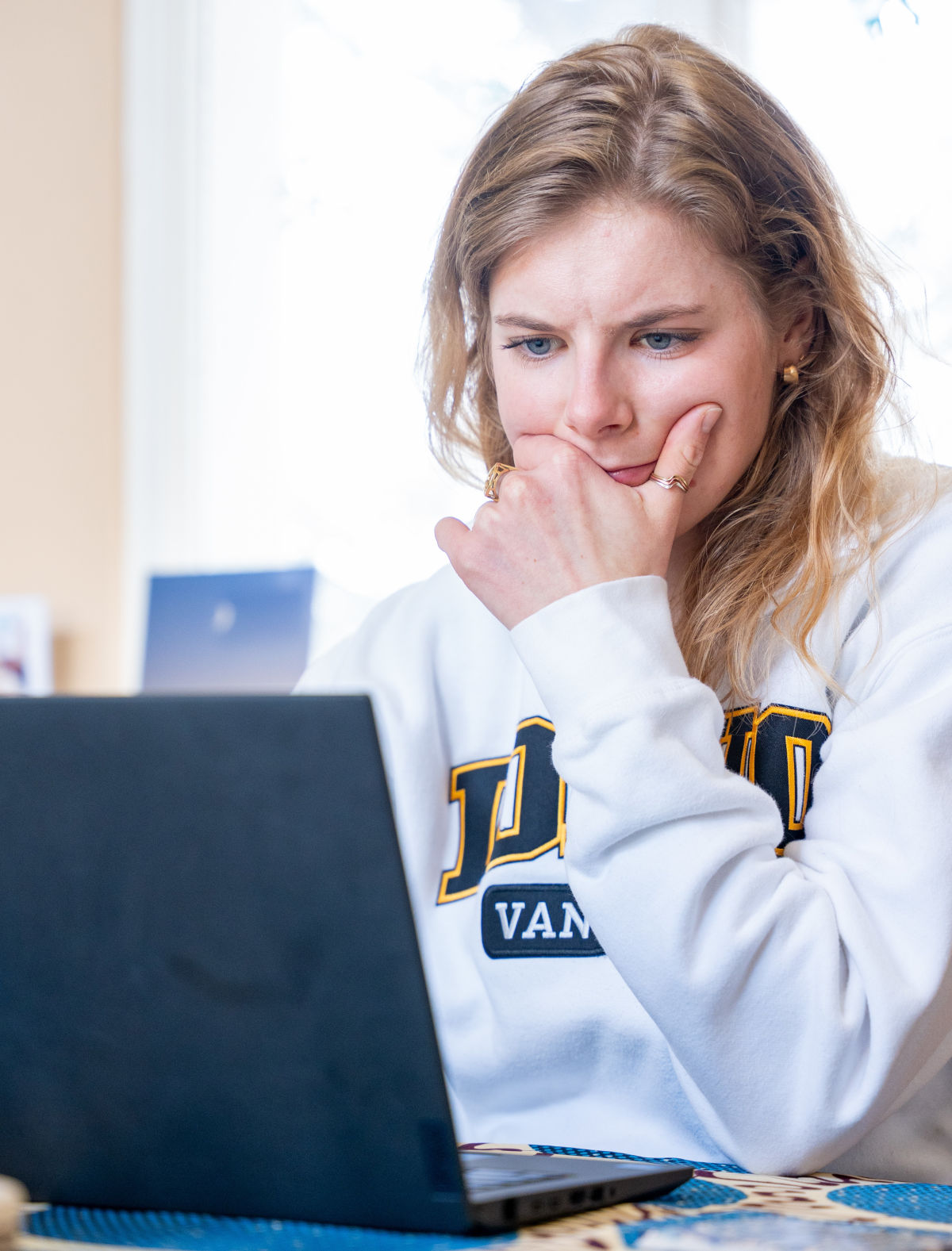Soil and water systems graduate student travels to Uzbekistan to help determine scope of water quality issues
Research explores causes of poor drinking water quality for millions in Central Asia
Marina Steiner took water quality issues to heart when she couldn’t swim in a lake near University of Wisconsin-Madison because of harmful algal blooms. It didn’t take her long to realize that water quality issues might have a wider scope than just not being able to enjoy a day at the beach.
Her subsequent research at University of Idaho’s Department of Soil and Water Systems, along with her field work with TerraGraphics International Foundation (TIFO), could improve the lives of 2 million people in the Republic of Karakalpakstan, an autonomous region in Uzbekistan.
“I grew up on the water,” said Steiner, originally from Minnesota. “I knew I wanted to do something to protect the water for recreation, but there’s also the human health aspect of it. It’s one thing not to be able to swim, but there are entire populations of people around the world affected by poor drinking water.”
After completing her undergraduate degree in Wisconsin, she found the water resources graduate program in Moscow and decided to come to Idaho. Through the strong water resources community at U of I, she quickly connected to the Idaho Water Resources Research Institute (IWRRI).
“U of I’s program comes highly recommended,” said Steiner, who recently received U of I’s Graduate and Professional Student Association Outstanding Graduate Student Award. “I also found an incredible organization to work with in TIFO that’s doing exactly what I want to do. I was at the right place at the right time.”

Diving In
Follow U of I student Marina Steiner to Uzbekistan, where she and members of the TerraGraphics International Foundation in Moscow have been assisting local governments in identifying drinking water contaminants.
Coming west, heading east
Steiner came to U of I in January 2024 and quickly found herself spending a month in Karakalpakstan as part of long-term project headed by TIFO.
At an invitation from Doctors Without Borders and Karakalpak government officials, TIFO began a collaborative environmental health investigation in response to the Aral Sea Crisis in 2022.
When Greg Möller, professor at College of Agricultural and Life Sciences (CALS), took a cold call from Steiner in 2023, answering questions about U of I’s water resources program and hearing about Steiner’s interests, he knew he found someone that might fit into TIFO’s work in Karakalpakstan.
“Marina is a person who has a passion to do good,” said Möller, Steiner’s major professor. “The previous work experience she had before coming to U of I makes her a valuable member of the TIFO team. It’s one thing to be able do the work, but you also need the risk communication skills to work with the impacted communities to help them understand the issues.”
Steiner had to develop new communications skills once she arrived overseas. One of her first assignments was to work with partners to translate digitized water quality monitoring data collected by the government over a five-year period. The information was recorded in three different languages — Karakalpak, Uzbek and Russian.

The new data will build upon the data collected by TIFO in 2023 when the team identified two issues with the water — pesticide residues and salinity, both caused by old Soviet Union practices when Karakalpakstan was still part of that country.
“Not a single water sample we took would have passed U.S. standards for drinking water,” said TIFO Executive Director Casey Bartrem ’17, a former student of Möller’s who also spent time in Karakalpakstan on the project. “This is the water they are drinking every day.”
Using these two data sets, the team will propose interim health risk intervention strategies to the Karakalpak government, which will reduce the health burden for the most vulnerable populations.
Partnering for the environment
The relationship between U of I and TIFO, which goes back more than 30 years, has created many opportunities for U of I students to participate in field work specific to environmental science.
The Environmental Science Program (ENVS) at U of I was created in 1993 by representatives from CALS, College of Natural Resources, College of Science and College of Engineering. One of those representatives was Margrit Von Braun.
Von Braun, along with her husband Ian Von Lindern, founded TerraGraphics Environmental Engineering Inc. in Moscow in 1984 and TIFO in 2012. In addition to serving as the dean at College of Graduate Studies, Von Braun also taught classes for ENVS, including co-teaching a waste management class with Möller.

Möller’s ongoing relationship with TIFO allows him to find field opportunities for students that most programs don’t have access to.
I grew up on the water. I knew I wanted to do something to protect the water for recreation, but there’s also the human health aspect of it. It’s one thing not to be able to swim, but there are entire populations of people around the world affected by poor drinking water.Marina Steiner, soil and water systems graduate student
“What’s really cool is that, as far as I know, we’re the first group that’s been granted access to governmental monitoring data in this region,” Steiner said.
Steiner, who plans on returning to Uzbekistan in Summer 2025 on a U.S. National Academies fellowship, also credits her time at U of I as the reason she wants to focus on community-related health issues.
“One of my biggest takeaways from the trip is how much we take our water resources for granted in the U.S.,” she said. “We have water quality issues here, but it’s nothing like it is in places like Karakalpakstan. I want a career where I can make an impact.”
Article by David Jackson, University Communications and Marketing.
Photos by Garrett Britton, University of Idaho Visual Productions and courtesy photos from TerraGraphics International Foundation.
Video by Garrett Britton, University of Idaho Visual Productions and TerraGraphics International Foundation.
Published in April 2025.










